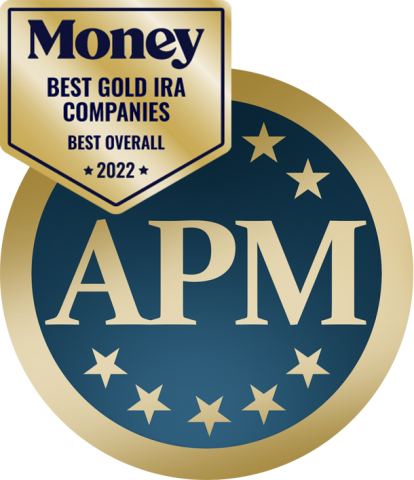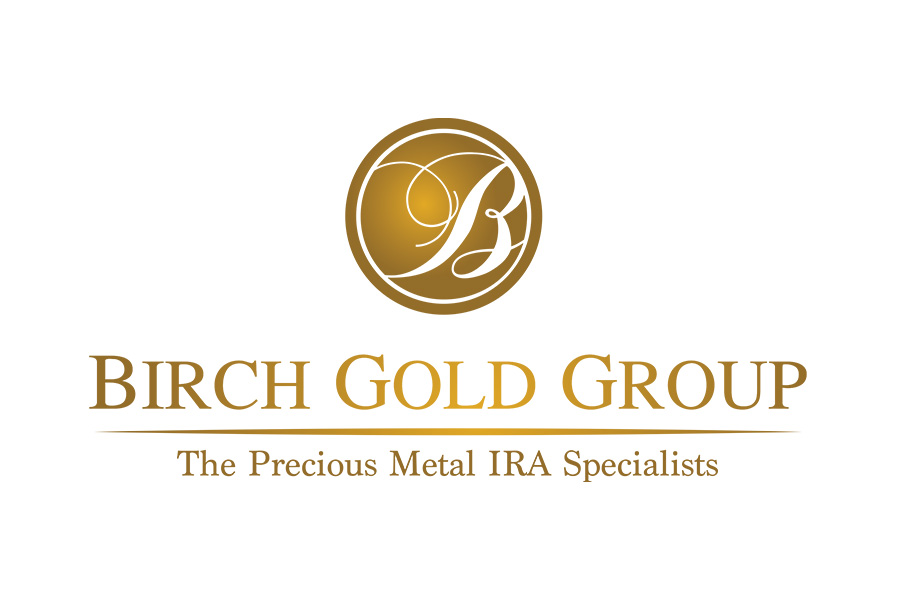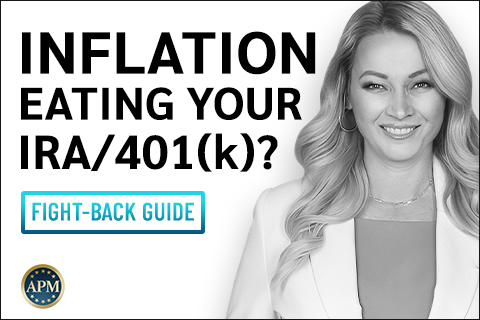Affiliate Disclosure
The owners of this website may be paid to recommend the following companies: Goldco, Augusta Precious Metals, Noble Gold Investments, and Birch Gold Group. The content on this website, including any positive reviews of the mentioned companies, and other reviews, may not be neutral or independent. We do believe in all the companies we recommend as being the most trustworthy in the business.
Welcome to our comprehensive guide on the 401k to Gold IRA Rollover, where we explore the process of safeguarding your retirement with precious metals. In this article, we’ll delve into the world of 401k, Gold IRA, and how combining the two can be a smart financial move. Let’s get started!
401k to Gold IRA Rollover

What is a 401k?
A 401k is a retirement savings plan that is sponsored by an employer. It allows employees to contribute a portion of their pre-tax income into an investment account, where it grows tax-deferred until retirement.
What is a Gold IRA?
A Gold Individual Retirement Account (IRA) is a self-directed IRA that allows you to invest in physical gold and other precious metals. Unlike traditional IRAs, Gold IRAs offer diversification and a hedge against economic uncertainties.
Why Rollover?
Rollover your 401k to a Gold IRA can provide you with more control over your retirement funds and offer protection against inflation and market volatility.
401k to Gold IRA: Video
Get FREE Gold when you open a gold IRA!
Money Magazine’s TOP Rated Gold IRA 2022, 2023, and 2024!
Understanding 401k and Its Benefits:
Features of a 401k
A 401k comes with several key features that make it a popular retirement savings option:
- Employee Contributions: As an employee, you have the flexibility to contribute a portion of your salary to your 401k account. These contributions are deducted from your pre-tax income, reducing your taxable income for the year.
- Employer Matching: Many employers offer a matching program, where they contribute to your 401k account based on your contributions, up to a certain percentage of your salary. This is essentially free money that can boost your retirement savings.
- Tax Benefits: One of the significant advantages of a 401k is its tax-deferred nature. The money you contribute to your 401k grows tax-free until you start making withdrawals during retirement. This allows your savings to compound over time without being eroded by taxes.
- Investment Options: 401k plans typically offer a range of investment options, such as mutual funds, stocks, bonds, and more. This allows you to tailor your portfolio based on your risk tolerance and retirement goals.

Pros and Cons of 401k
Like any investment or savings vehicle, 401k plans have their own set of advantages and disadvantages.
Pros:
- Tax-Advantaged Savings: The primary benefit of a 401k is the tax advantages it offers. Contributions are made with pre-tax income, reducing your taxable income for the year, and the growth is tax-deferred until retirement.
- Employer Contributions: Many employers offer a matching program, where they contribute a percentage of your salary to your 401k account. This is essentially free money that can significantly boost your retirement savings.
- Automatic Payroll Deductions: 401k contributions are deducted directly from your paycheck, making it a convenient and automatic way to save for retirement.
Cons:
- Limited Investment Choices: While 401k plans offer a variety of investment options, they are typically limited to a selection pre-approved by the plan administrator. This may restrict your ability to invest in specific assets or strategies.
- Early Withdrawal Penalties: Withdrawing funds from a 401k before the age of 59 ½ may incur penalties and taxes, except under certain qualifying circumstances.
- Market Risks: Like any investment, the value of your 401k account can fluctuate based on market conditions. While diversification can help mitigate risk, there is always a level of market uncertainty to consider.
Introduction to Gold IRAs:
What is a Gold Individual Retirement Account (IRA)?
A Gold IRA is a specialized type of self-directed IRA that allows you to invest in approved precious metals, including gold, silver, platinum, and palladium. Unlike traditional IRAs that restrict your investment options to stocks, bonds, and mutual funds, a Gold IRA provides an alternative to diversify your retirement portfolio with tangible assets.
Gold IRAs offer investors the opportunity to hold physical precious metals, which can act as a hedge against inflation, currency fluctuations, and economic uncertainties. The Internal Revenue Service (IRS) regulates Gold IRAs to ensure compliance with tax laws and prevent abuse of the tax advantages associated with retirement accounts.
Benefits of Gold IRA:
Diversification and Safety
Diversifying your retirement portfolio with physical gold can reduce risk and protect your wealth from market fluctuations. Precious metals, including gold, have historically shown a negative correlation with traditional assets like stocks and bonds. This means that when the stock market declines, gold often tends to rise in value, providing a counterbalance to your overall investment portfolio.
Moreover, gold’s intrinsic value and scarcity make it a tangible asset that can withstand economic crises and geopolitical uncertainties. During times of financial turmoil, gold has proven to be a safe-haven asset that investors flock to for protection and preservation of wealth.

Hedge Against Inflation
Inflation erodes the purchasing power of your money over time, diminishing the value of your savings. Gold, as a finite resource, has historically maintained its purchasing power, making it an effective hedge against inflation.
While the value of fiat currencies may fluctuate due to economic factors, gold’s scarcity and universal acceptance as a store of value provide a reliable defense against currency devaluation and inflationary pressures.
Our Top Trusted Company Picks for 2023
Our recommended Providers are researched and vetted by us and many top consumer organizations. This is the short list of the most consistent companies we could come up with. Request information from them below.
#1: Augusta Precious Metals
Our Rating: 10/10
Pros
✅ ZERO complaints with the BBB and BCA
✅ Highest reputation and customer satisfaction in the industry
✅ The best “White Glove” service!
✅ Non-commissioned sales team
✅ Transparent pricing with up to 10 years of fees waved – with certain minimum investments
✅ NFL Legend Joe Montana actual customer before becoming their spokesperson
Call Augusta for your free gold kit now:
1-855-470-4636
Get FREE Gold when you open a gold IRA!
#2: Birch Gold Group
Our Rating: 9.9/10
Pros
✅ Great company commitment to education and communication
✅ Impeccable customer service
✅ Silver, gold, platinum and palladium available
Cons
❌ Signup process can only be done thought a specific link
❌ No buyback guarantee of precious metals
#3: Noble Gold Investments
Our Rating: 9.9/10
Pros
✅ One of the best no questions asked buyback programs in the industry
✅ Free delivery of your precious metals to your door at any time
✅ Over 20 years of experience in the precious metals industry
✅ Gold, silver, platinum, and palladium available
✅ Secure, exclusive storage in the
State of Texas
✅ One of the lowest barriers to entry – ideal for smaller investors
Cons
❌ High annual fees for low balances
❌ Offers common bullion only. Does not offer premium bullion or collectible coins
Call Noble Gold for your FREE Investing Kit!
1-626-684-4908
Rollover Process and Eligibility
How to Roll Over a 401k to Gold IRA
Rollover your 401k to a Gold IRA involves a straightforward process, but it is essential to follow the proper steps to ensure a smooth transition.
- Research and Choose a Custodian: Before initiating the rollover, research and select a reputable custodian or trustee that specializes in precious metals IRAs. The custodian will facilitate the rollover process and hold your physical gold on your behalf.
- Request Rollover Forms: Contact your current 401k plan administrator and request the necessary rollover forms. These forms will include instructions for initiating the rollover and transferring your funds to the new Gold IRA account.
- Choose Your Precious Metals: Once your Gold IRA is established, work with your chosen custodian to select the specific precious metals you wish to hold in your account. The IRS has strict regulations on the types of metals that are eligible for inclusion in a Gold IRA.
- Fund Transfer: Your 401k funds will be directly transferred to your new Gold IRA account, ensuring a tax-free and penalty-free rollover.
- Storage Arrangements: With your Gold IRA established and funded, your precious metals will be securely stored in a designated storage facility. The custodian will handle all storage arrangements on your behalf.
- Stay Updated: Regularly review your Gold IRA account and stay informed about market trends and the performance of your precious metals holdings.
Eligibility Criteria
Not everyone is eligible for a Gold IRA. To initiate a 401k to Gold IRA rollover, you must meet certain requirements:
- Leaving Employment: Generally, you must have left your employer for reasons such as retirement, termination, or changing jobs to be eligible for a rollover.
- 401k Plan Rules: Some 401k plans have specific rules and restrictions regarding rollovers. Check with your plan administrator to ensure your plan allows for rollovers.
- IRA Contribution Limits: Be mindful of IRS contribution limits for IRAs to avoid exceeding annual contribution caps.
It is crucial to consult with a financial advisor or tax professional before proceeding with a Gold IRA rollover to ensure compliance with all IRS regulations and to make informed decisions based on your individual financial situation.
Limited Time offer!
Choosing the Right Custodian for Your Gold IRA
Importance of a Custodian for Gold IRA
A custodian plays a critical role in managing the assets held within your Gold IRA. They act as a neutral third party responsible for the secure storage and administration of your precious metals holdings. The IRS requires all Gold IRA accounts to have a custodian or trustee to ensure compliance with tax laws.
Custodians offer various services, including facilitating transactions, reporting to the IRS on your behalf, providing account statements, and handling required minimum distributions (RMDs) once you reach the age of 72.
Factors to Consider
When selecting a custodian for your Gold IRA, several factors should be taken into account:
- Reputation and Experience: Choose a custodian with a solid reputation and a long history of providing exceptional service to their clients. Look for custodians with experience in handling precious metals IRAs.
- Fees and Expenses: Different custodians charge varying fees for their services. Compare fee structures to ensure you are getting the best value for your money.
- Storage Facilities: Verify the custodian’s storage facilities and security measures to ensure your precious metals are safe from theft or damage.
- Customer Service: Excellent customer service is essential, as you may need to contact your custodian from time to time for assistance with account-related matters.
- Flexibility: Choose a custodian that allows you to make changes to your precious metals holdings and provides a user-friendly platform for account management.
- Regulatory Compliance: Ensure the custodian complies with all IRS regulations regarding precious metals IRAs.
Research multiple custodians and request information about their services, fee schedules, and storage facilities. Compare your options before making a final decision to ensure that your Gold IRA is in trustworthy hands.
Types of Precious Metals Eligible for IRA
Gold and Its Different Forms
When investing in a Gold IRA, you have the option to choose from various forms of gold, each with its unique characteristics and advantages:
- Gold Bars: Gold bars, also known as gold bullion, are produced by accredited refiners and mints worldwide. They are available in different sizes, ranging from one gram to one kilogram. Gold bars are a cost-effective way to acquire larger quantities of gold and are easily stored.
- Gold Coins: Gold coins are minted by government authorities and private mints. They often have a higher premium compared to gold bars due to their collectible and aesthetic value. Popular gold coins for investment include American Gold Eagles, Canadian Gold Maple Leafs, and South African Krugerrands.
- Gold Bullion Coins: These are government-issued gold coins that contain precisely one troy ounce of gold. They are recognized as legal tender and are valued based on the current market price of gold.
- Gold Numismatic Coins: Numismatic coins are rare or historic gold coins that derive value from their historical significance, scarcity, and condition. While they can offer potential for significant appreciation, they are not typically recommended for Gold IRAs due to their premium and collectible nature.
Silver and Other Metals
In addition to gold, a Gold IRA can also include other approved precious metals, such as silver, platinum, and palladium:
- Silver: Silver is another popular precious metal often included in a Gold IRA. It is more affordable than gold, making it accessible to a broader range of investors. Like gold, silver can act as a hedge against inflation and economic uncertainties.
- Platinum: Platinum is a rare and valuable metal that offers unique properties and applications. It can be a valuable addition to a diversified precious metals portfolio, providing exposure to industrial demand and jewelry markets.
- Palladium: Palladium is a relatively new addition to precious metals IRAs. It has gained popularity in recent years due to its use in automotive catalytic converters and its increasing investment demand.
It’s essential to consult with a precious metals expert or financial advisor before adding silver, platinum, or palladium to your Gold IRA to ensure compliance with IRS regulations and to make informed investment decisions.

Setting Up a Gold IRA Account
Steps to Open a Gold IRA Account
Setting up a Gold IRA account requires careful planning and adherence to IRS regulations. Follow these steps to establish your Gold IRA:
- Choose a Custodian: Research and select a reputable custodian or trustee that specializes in precious metals IRAs. The custodian will be responsible for managing your Gold IRA and ensuring compliance with tax laws.
- Fund Your Account: Fund your Gold IRA with a direct rollover from an existing retirement account, such as a 401k or traditional IRA. You can also make contributions to your Gold IRA using funds from your annual income, subject to IRS contribution limits.
- Select Your Precious Metals: Work with your chosen custodian to select the specific precious metals you wish to include in your Gold IRA. Ensure that the metals meet IRS requirements and are eligible for inclusion in a retirement account.
- Arrange for Secure Storage: Your custodian will handle arrangements for secure storage of your precious metals holdings in an IRS-approved depository. The metals will be held on your behalf, and you will receive regular account statements and updates.
- Monitor and Review: Regularly review your Gold IRA account and monitor the performance of your precious metals holdings. Stay informed about market trends and economic developments that may impact the value of your investments.
Opening a Gold IRA account requires careful consideration and an understanding of the IRS regulations governing precious metals IRAs. Work with a knowledgeable financial advisor or precious metals expert to ensure that your Gold IRA aligns with your retirement goals and risk tolerance.
Investing in Gold for Retirement
Bars, Coins, or ETFs: What to Choose?
When investing in gold for retirement through a Gold IRA, you have several options for acquiring physical gold:
- Gold Bars: Gold bars, also known as gold bullion, are available in various weights and sizes. They are a cost-effective way to acquire larger quantities of gold and are typically sold at a lower premium over the spot price.
- Gold Coins: Gold coins come in a variety of designs and denominations. They are often minted by government authorities and private mints and can carry a higher premium compared to gold bars due to their collectible value.
- Gold ETFs: Gold exchange-traded funds (ETFs) are financial products that track the price of gold. They are traded on stock exchanges and provide investors with exposure to the price movements of gold without physically owning the metal.
When choosing between gold bars, coins, or ETFs for your Gold IRA, consider factors such as liquidity, storage requirements, and your long-term investment goals. Physical gold in the form of bars and coins offers the advantage of direct ownership, while ETFs provide convenience and ease of trading on the stock market.
It’s important to remember that the IRS has specific regulations on the types of gold that are eligible for inclusion in a Gold IRA. Work closely with your custodian and financial advisor to ensure that your chosen gold investments comply with IRS guidelines.

Tax Implications of Gold IRA Investments
Tax Advantages of a Gold IRA
One of the significant benefits of holding gold within a Gold IRA is the tax advantages it offers:
- Tax-Deferred Growth: Just like traditional IRAs, Gold IRAs offer tax-deferred growth. This means that the gains made on your gold investments within the IRA are not subject to income tax until you start making withdrawals during retirement.
- Reduced Tax Liability: By deferring taxes on your gold investments, you may be able to reduce your overall tax liability during your working years, allowing your investments to compound at a higher rate.
- Tax-Free Rollovers: When you rollover your 401k or other retirement accounts to a Gold IRA, as long as you follow IRS guidelines, the transfer is tax-free and penalty-free.
- Estate Planning Benefits: Gold IRAs offer estate planning advantages, allowing you to pass on your precious metals holdings to your beneficiaries with favorable tax treatment.
Rules and Regulations
While Gold IRAs offer compelling tax advantages, it’s essential to be aware of the rules and regulations governing these retirement accounts:
- Distribution Rules: Like traditional IRAs, Gold IRAs are subject to required minimum distribution (RMD) rules. Once you reach the age of 72, you must start taking withdrawals from your Gold IRA based on IRS guidelines.
- Prohibited Transactions: The IRS prohibits certain transactions within a Gold IRA to prevent abuse of the tax-deferred status. For example, you cannot use the precious metals held in your Gold IRA for personal use or to purchase assets for personal benefit.
- Storage Requirements: The IRS requires that your precious metals holdings be held in an approved depository and that you do not take physical possession of the metals while they are part of your Gold IRA.
- Qualified Precious Metals: Not all types of precious metals are eligible for inclusion in a Gold IRA. The IRS has specific requirements for the fineness and purity of the metals allowed in these retirement accounts.
Consult with a tax professional or financial advisor familiar with Gold IRAs to ensure that you are fully compliant with IRS regulations and that you maximize the tax advantages available to you.
Comparing Gold IRA with Other Investments
Gold vs. Stocks
Gold and stocks represent two different asset classes with unique characteristics and risk profiles. Here’s a comparison of gold and stocks as investment options for your retirement portfolio:
Gold
- Store of Value: Gold has been used as a store of value for centuries, and its scarcity gives it intrinsic value.
- Hedge Against Inflation: Gold has historically acted as a hedge against inflation, preserving purchasing power over time.
- Diversification: Including gold in your portfolio can provide diversification and reduce overall portfolio risk.
Stocks
- Potential for High Returns: Stocks have historically offered the potential for higher returns compared to gold and other assets.
- Dividends: Many stocks pay dividends, providing an additional source of income for investors.
- Market Volatility: Stocks are subject to market fluctuations, and their value can be influenced by a wide range of factors.
Both gold and stocks have a place in a well-diversified portfolio. Gold can act as a hedge against economic uncertainty and inflation, while stocks offer the potential for long-term capital appreciation. Your choice between gold and stocks will depend on your risk tolerance, investment goals, and time horizon.
Protecting Your Retirement with Gold IRA
Hedging Against Market Volatility
Market volatility can have a significant impact on traditional investments such as stocks and bonds. During times of economic uncertainty, investors often seek safe-haven assets like gold to protect their wealth.
Gold’s price tends to move in the opposite direction of stocks and other financial assets during periods of market turbulence. This inverse correlation can act as a buffer, reducing the overall volatility of your investment portfolio.
Moreover, gold has a long history of holding its value during economic downturns and crises. It provides a tangible and reliable store of wealth, offering peace of mind to investors during turbulent times.
Preservation of Wealth
Preserving wealth is a primary goal of retirement planning. Gold, as a precious metal with intrinsic value, has the potential to preserve wealth over the long term.
Unlike fiat currencies, whose value can be eroded by inflation and economic events, gold’s scarcity and universal acceptance make it a reliable store of value. Throughout history, gold has retained its purchasing power and maintained its value during periods of economic instability.
Including gold in your retirement portfolio through a Gold IRA can provide a secure foundation for your wealth and safeguard your financial future.
Risks and Considerations
Market Fluctuations
Like all investments, gold is subject to price fluctuations. The price of gold can be influenced by various factors, including:
- Economic Data: Economic indicators such as GDP growth, employment data, and inflation rates can impact the price of gold.
- Geopolitical Events: Geopolitical tensions and global events can create uncertainty in financial markets and drive demand for safe-haven assets like gold.
- Interest Rates: The level of interest rates set by central banks can affect the opportunity cost of holding gold, as it does not pay interest or dividends.
Investors should be prepared for price volatility and consider their risk tolerance and investment time horizon before adding gold to their retirement portfolio.
Storage and Security
When investing in physical gold through a Gold IRA, storage and security become critical considerations. Gold bullion and coins must be securely stored in an IRS-approved depository to maintain the tax-deferred status of the Gold IRA.
Choose a custodian that offers secure storage facilities and adheres to strict security protocols. The depository should be insured against loss or damage, providing peace of mind to investors.
Yes, you can rollover your 401k to a Gold IRA without incurring penalties as long as you follow IRS guidelines and complete a direct rollover.
The IRS requires you to complete a rollover within 60 days of receiving the funds from your 401k plan to avoid penalties and taxes.
Yes, a Gold IRA allows you to invest in approved precious metals, including silver, platinum, and palladium.
There are no IRS-imposed limits on the amount of gold you can hold in your Gold IRA.
A precious metals IRA storage facility is a secure location where your physical gold is stored.
Regularly review your Gold IRA portfolio to ensure it aligns with your retirement goals and risk tolerance.
Gold has historically been considered a safe-haven asset and can be a valuable addition to a retirement portfolio.
Yes, you can make regular contributions to your Gold IRA, similar to a traditional IRA.
No, Gold IRAs are not subject to RMDs, allowing for greater flexibility in managing your retirement assets.
Your Gold IRA can be passed on to your designated beneficiaries upon your passing.
Conclusion
In conclusion, a 401k to Gold IRA rollover can be a strategic move to protect and grow your retirement savings. By diversifying your portfolio with precious metals, you gain a safeguard against economic uncertainties and market volatilities. Remember to conduct thorough research and seek professional advice when setting up your Gold IRA.
Invest in your future by securing your retirement with gold today!







